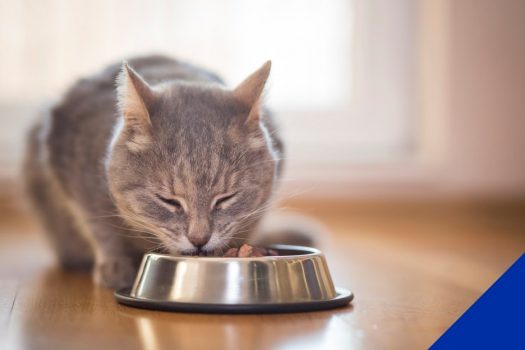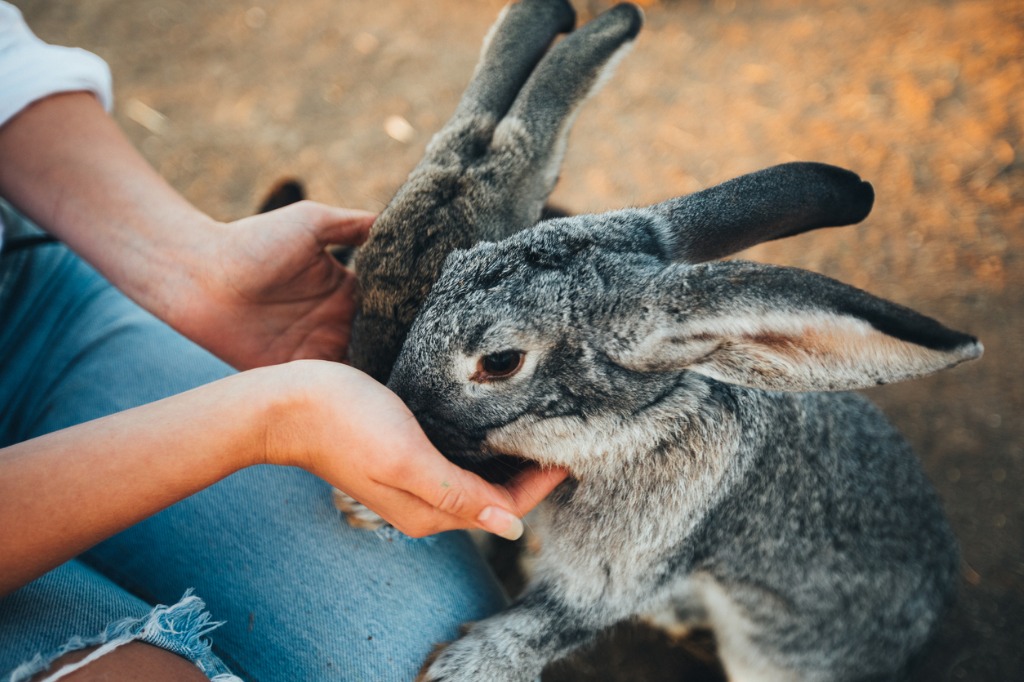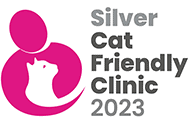Here at Crofts Veterinary Practice in Surrey, we believe that vaccinations are an important part of protecting your pets from severely harmful, yet preventable diseases and are an essential part of responsible pet care.
Dogs, cats and rabbits are susceptible to a number of life-threatening diseases, but scientific advances and the introduction of immunisation has been very effective in reducing the number of cases dramatically. It is tempting to assume that they are no longer a threat to our pets as we hear little about them, but they still do remain a constant danger, meaning the correct vaccination programme is the best way to keep your pet safe.
Book a pet vaccination appointment
Dog Vaccinations
Puppies
The primary pet vaccinations for puppies help to overcome the remaining anti-body protection that they still have from their mothers and ensures reliable protection at an early age. The first vaccination is usually given at 8 weeks old, followed by a second two to four weeks later (no earlier than 10 weeks old), allowing for an early socialisation programme. At the second vaccination appointment, we will provide you with your certificate of vaccination.
The dog vaccinations will not work immediately, so it’s important to confirm with the Vet when you are ok to let your puppy socialise with other animals. They will then require a booster vaccination at 6 or 12 months of age. As your puppy gets older, you must ensure you regularly keep up to date with annual injections as the initial immunity may fade and then leave them at risk. Crofts Veterinary Practice recommends that yearly boosters are obtained to ensure immunisation is up to date.
Book a pet vaccination appointment for your dog
What Diseases do Dog Vaccinations Protect Against?
The team here at Crofts Veterinary Practice can provide the following vaccinations for your dog:

- Canine Parvovirus - a virus that can survive for long periods - is usually fatal.
- Canine distemper (hard pad) - a severe, usually fatal disease, rare in the UK in recent years due to vaccination.
- Infectious hepatitis - still exists in the UK (although rare due to vaccination) and is often fatal.
- Leptospirosis - contracted from the urine of rats and/or other dogs. Canals and rivers can be contaminated, and forms of the disease are widespread in the UK. Can also cause severe disease in humans (weils disease).
- Kennel cough/Parainfluenza - an extremely unpleasant harsh, dry cough, highly contagious disease of the respiratory tract, usually transmitted in places where dogs gather (kennels, shows, parks where lots of dogs are walked). Dogs of all ages can be affected; it is caused by several bacterial and viral agents. The coughing can last for some weeks and during this time serious complications such as pneumonia may arise, especially in puppies or older dogs, these complications can occasionally be fatal.
- Rabies fatal disease - not found in the UK. Vaccination is required if your dog is travelling abroad.
A full health check is booked for every dog that is having a vaccination to ensure that they are in good health before giving the injection.
Cat Vaccinations
Cat vaccinations are important to protect them from severe infectious diseases and passing anything to other animals in your area. Several dangerous diseases continue to infect cats throughout the UK. This is especially true if you intend to let your kitten or cat roam freely outside. Until your cat is fully vaccinated and neutered you should keep them inside.
Kittens
The primary cat vaccination course for kittens consists of two injections. As with puppies, kittens will have some protection from their mothers in their bloodstream, which is why a second injection of the vaccine is required to complete immunisation.
Kitten vaccinations start from 8 weeks of age, with the second vaccine administered three weeks after the first. A certificate of vaccination will be provided at the second vaccination appointment.
It is important for annual boosters to be taken to make sure immunity remains effective.
Book a vaccination appointment for your cat
What Diseases do Cat Vaccinations Protect Against?

- Cat flu (feline upper respiratory tract disease) – a very common disease in the UK and can be serious, especially in kittens and older cats. It spreads between cats by direct contact or through sneezing. Symptoms include a runny nose and eyes, high temperature and lethargy.
- Feline enteritis (feline panleucopenia) - An unpleasant, often fatal disease, vaccination has been successful in controlling the disease.
- Feline leukaemia virus - A viral disease usually transmitted when cats fight or during grooming. It can take months to develop after the initial infection but then will begin to suppress the cat’s immune system, causing secondary infections, tumours and death.
- Chlamydophila felis - Causes conjunctivitis and is mainly seen in kittens and those in multi-cat households.
- Rabies - A fatal disease not found in the UK; vaccination is mandatory if you plan to take your cat abroad.
We can talk you through any type of vaccination that may be required for your cat.
 Rabbit Vaccinations
Rabbit Vaccinations
We recommend that rabbits are vaccinated against myxomatosis and viral haemorrhagic disease (VHD).
Previously this would have been administered through two separate injections, however, our new rabbit vaccine means that your pet can be protected against myxomatosis and both strains of VHD with just a single injection.
Book a pet vaccination appointment for your rabbit
How do pet vaccines work?
Vaccines contain harmless (either weakened or dead) variants of viruses and other infectious agents. When an animal is vaccinated the immune system in the body responds by generating a protective mechanism through the formation of antibodies. If the animal then becomes exposed to the actual disease at a later date, those antibodies will prevent the disease from developing. The type of vaccines Crofts Veterinary Practice we recommend will be based on your pet’s lifestyle, risk factors and current guidance. Modern vaccines give protection to multiple diseases with just one or two injections. It is important to remember though that vaccines don’t give lifelong immunity and that is why regular booster vaccinations are recommended. It is also an excellent opportunity for your pet to have a full health check. We send out reminders for all vaccinations; please contact us to book an appointment.
Pet Vaccinations FAQ section
Why does my pet need to have vaccinations every 12 months?
Depending on the disease that your pet is being vaccinated against, the period of time that they are protected will differ. Certain diseases, such as leptospirosis in dogs and flu in cats only carry around 12 months of protection, which is why a yearly booster is recommended. Even though your pet might be being vaccinated every 12 months, it is not always against the same diseases – your vaccination card will show you which diseases they are getting boosters for each visit. Visiting us every 12 months for vaccinations also means your pet gets a full annual health check, which is equally important!
Does my pet need to be vaccinated if they live inside?
Although your pet may not go outside, it is still possible for diseases to be brought into the house. This could be via soil on a dirty boot or via other wildlife that could enter the home. Therefore, having full vaccination can provide the protection needed for all circumstances, meaning you don’t have to take the risk.
I have heard that vaccines are risky and to avoid them – is that true?
Any veterinary procedure that is performed can carry some sort of risk, however, in the case of vaccinations, it is important to remember that for the majority of pets the benefits of being vaccinated greatly outweigh the risks. Vaccination reactions are rare and where they do occur, they are mostly short-term and mild. Reactions of this nature show that the vaccine is effectively stimulating the immune system.
The team at Crofts Veterinary Practice are always happy to talk to you about the benefits and risks associated with vaccinating your pet to help identify the most suitable strategy as part of their wider preventative healthcare programme.
Are there any schemes/offers to help with covering the cost of my pets’ vaccinations?
Our Pet Health for Life Plan offers the best value way to vaccinate your pet to ensure they have the preventative health protection they need over the course of their lifetime. Being a member allows you the opportunity to spread the cost over 12 months whilst also receiving discounts on other services at Crofts Veterinary Practice.
If you would like further information on vaccination programmes for your pet, or our Pet Health for Life plan, please contact us.








